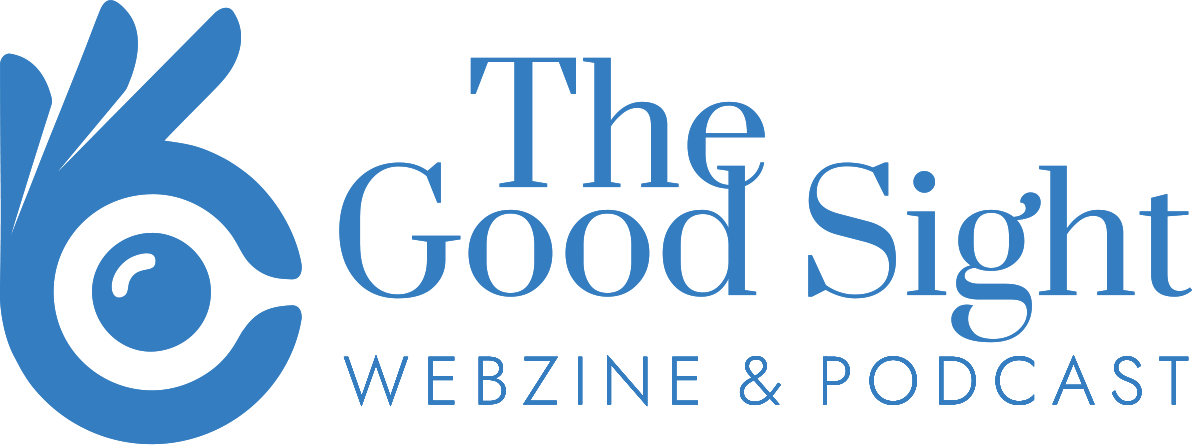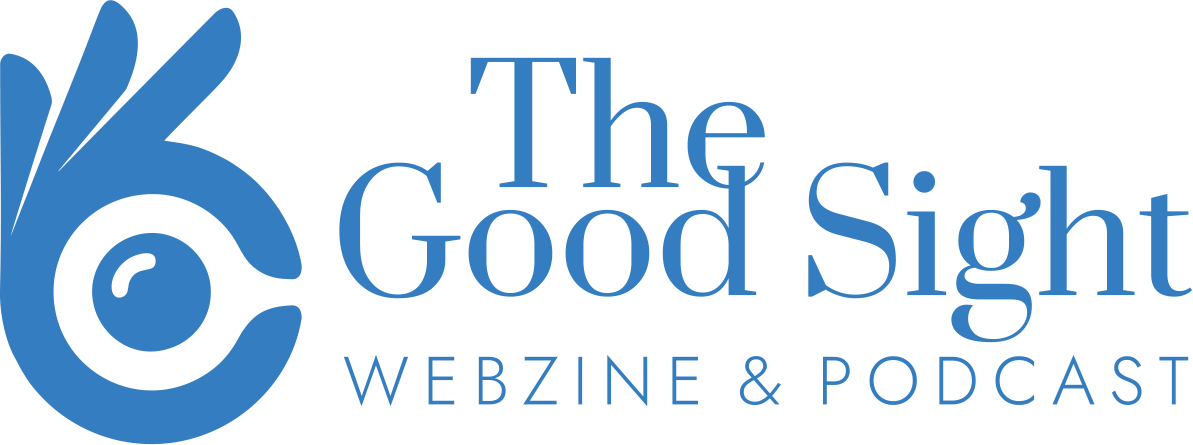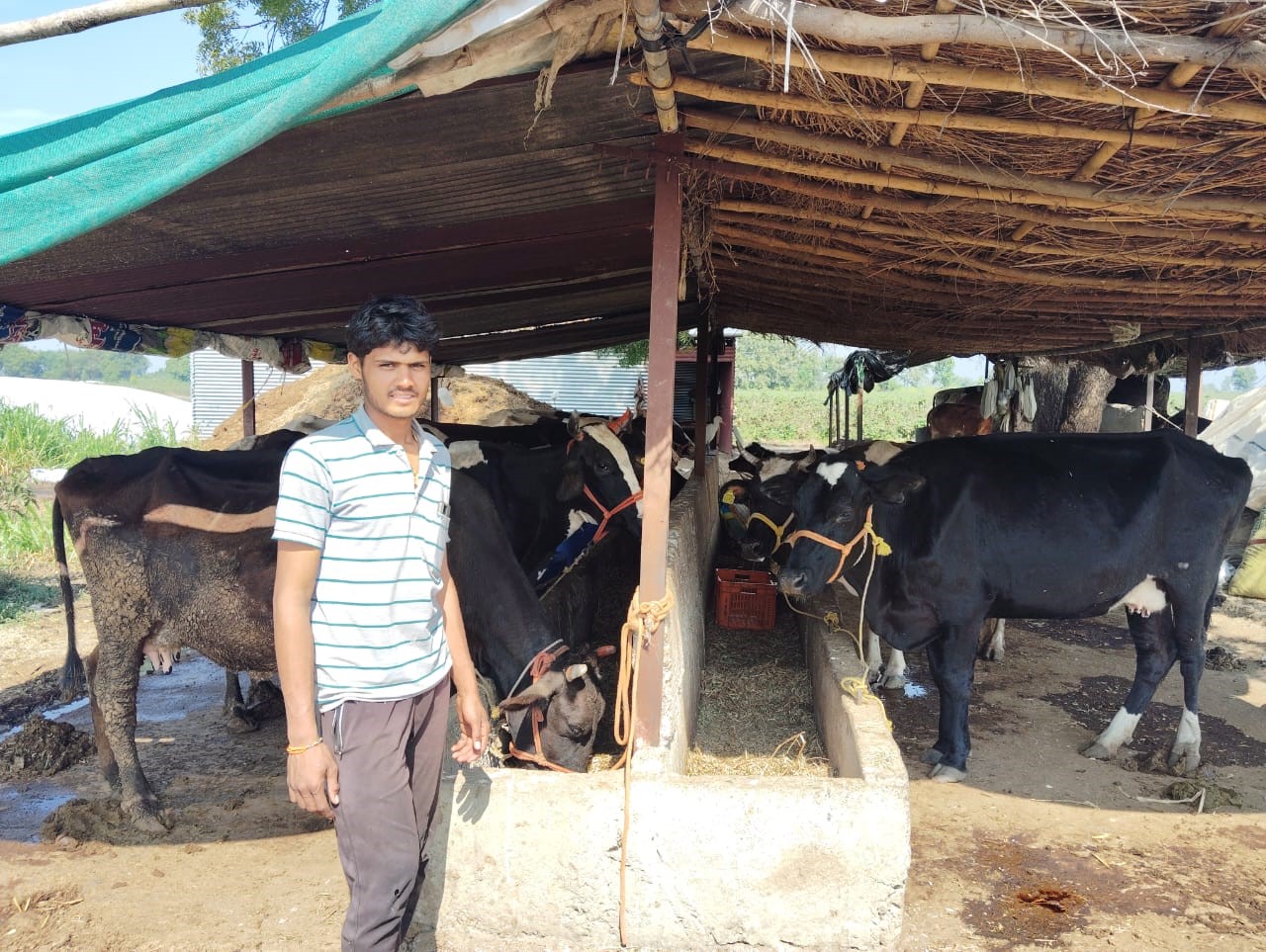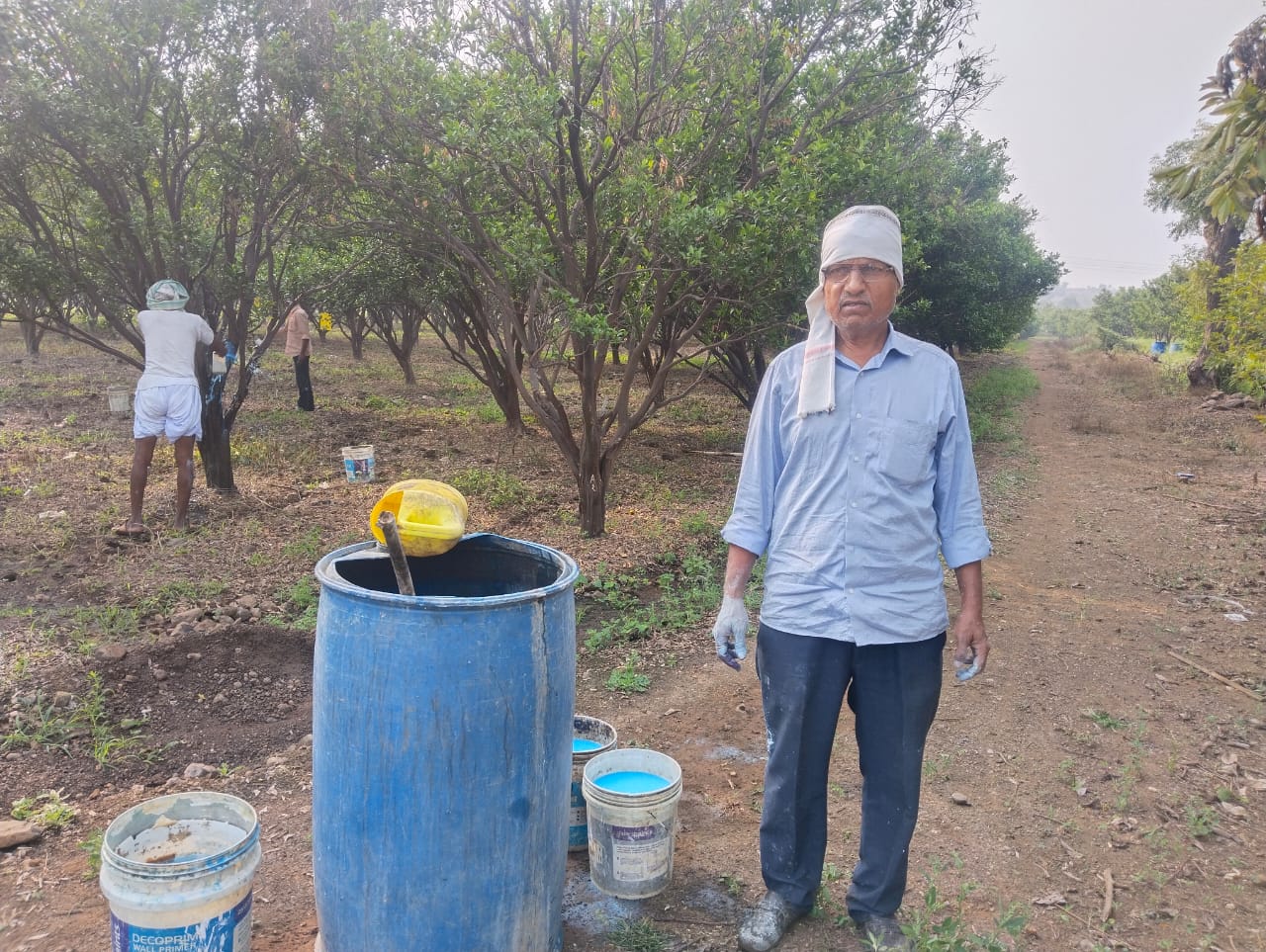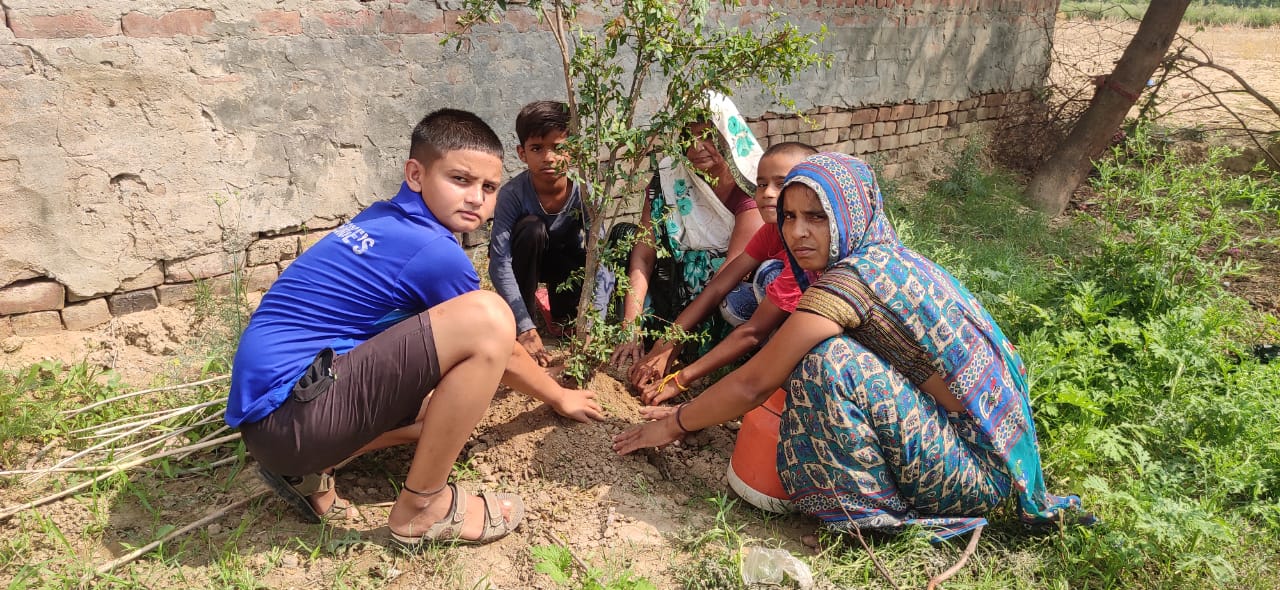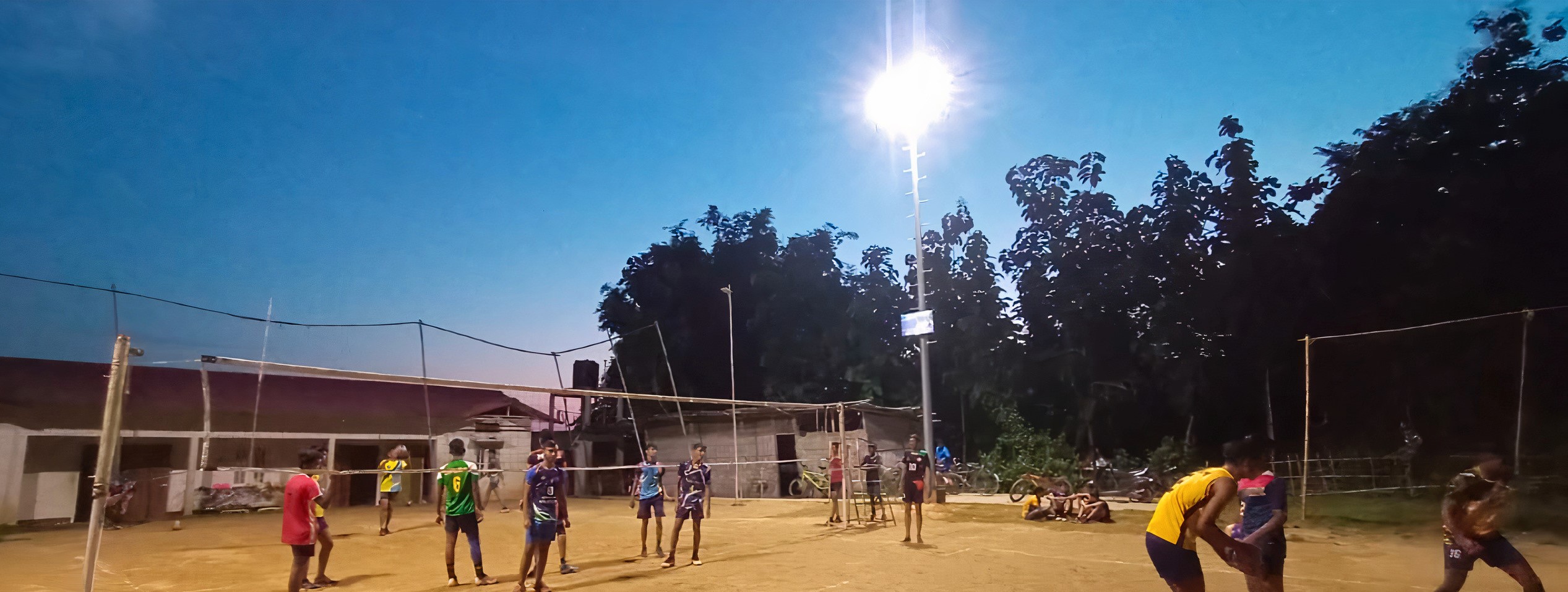Synergy Summit brings together leading educational thinkers and practitioners to forge a path towards universal foundational literacy and numeracy
There is a global literacy and numeracy crisis. An estimated 70% of the world’s 10-year-olds post-COVID cannot read, write or do basic arithmetic – up from 53% pre-pandemic.[1] Functional Literacy and Numeracy (FLN) has been a perennial problem in education, and there seems to be no end in sight.
Education as we know it has failed to provide foundational literacy and numeracy to the vast majority of children.
The National Initiative for Proficiency in Reading with Understanding and Numeracy (NIPUN Bharat) was launched in 2021 “to ensure that every child in India gains foundational numeracy and literacy by the end of Grade 3.” 2
We have a long way to go to if we are to achieve these ambitious goals by or before 2026-27. “India’s learning crisis is not news. The National Achievement Survey of 2017 tells us that 1 in 3 students in Grade 3 cannot read small text with comprehension and that 1 in 2 students in Grade 3 cannot use math to solve daily life problems. The findings from the 2018 ASER report are even more stark – only 50% of children in Grade 5 in rural India could read a Grade 2 level text, and only 28% of children in Grade 5 could solve a division problem.”3
If this is the report card on our education after 5 years of schooling before the COVID, how will this change post-COVID? What new directions are we taking? How are we filling the 70% gap that now exists? How fast are we filling this gap? What new efforts since schools re-opened are bridging these gaps most effectively? What can we learn from these efforts? How can we scale up these efforts?
These are some of the questions discussed during the first SYNERGY SUMMIT held at the India International Center in New Delhi on July 11 & 12. The theme of the conference could not have been more appropriate and timely, ‘A Paradigm Shift in FLN: Making India Literate in Months, Not Years’.

The Synergy Summit in New Delhi saw lively discussions among the stakeholders: government officials, CSR heads, NGO leaders, school and university heads.
The consensus was unanimous. If we are to accelerate towards literacy for all, and bridge the huge literacy gaps exacerbated by the pandemic, we need a paradigm shift. This entails wholesale systemic reform – new leadership and mission-mindedness, new pedagogy & curriculum, new governance & accountability structures. Above all, we need to synergize, bringing together diverse stakeholders to act together in a mass movement for literacy.
The four ACTS of the Synergy Summit
The four ACTS of the Synergy Summit are: A—Act, C—Commit, T—Transform, S—Share.

A—ACT
Act swiftly, before a generation is lost to illiteracy
The government through its highly proactive policies NEP 2020 and NIPUN Bharat, has placed the highest importance of India’s education on Foundational Literacy & Numeracy. Many new and innovative efforts have begun Pan-India as a result. The directions are clear. For the first time, there is new energy in the education sector to speed up providing of FLN skills to all primary aged children.
Yet FLN, a perennial problem, is hard to solve.
We need all minds together, and all hands on the deck. The participants of the Synergy Summit recognized the need for bringing all segments of society to work together in greater synergy. The Synergy Summit also called for urgent action on all fronts: From Policy to Curriculum. It further called for more financial resources to pay for such effective measures as Conditional Cash Transfers and PPP, to boost attendance and to bring in greater innovation and a new accountability. Prevention is much cheaper than cure – it is far better to ensure a child remains in school and becomes literate than to cope with the fallout of illiteracy.
C—COMMIT
Commit to mobilize all stakeholders to take all possible actions for universal FLN
To mobilise all stakeholders for action, we need clear statements of commitment. A key goal of the Synergy Summit was to invite commitments towards the common goal of universal literacy by representatives of key stakeholder groups.

Union Defense Minister Shri Rajnath Singh in a moving video message highlighted the importance of greater commitment to ‘find a solution’. (View on QR Code).

Shri Rajnath Singh said: “If India has to grow in terms of knowledge economy and if it wants to create a knowledge society, then foundation literacy will be its first and most necessary step. If we look at the actual situation of our country, even after 75 years of our independence, due to various reasons, we have not been able to reach an ideal position in foundational literacy. There is an urgent need to figure out the problems and find a solution. In this direction, I would like to congratulate Ms. Sunita Gandhi for her Accelerating Learning for All Program.”
The Synergy Summit was inaugurated by the Chief Guest, Dr. Abdulla Rasheed Ahmed, Minister of State for Education, Republic of Maldives. He argued that literacy and numeracy is the foundation not just of education, but also of life itself. He announced his commitment to bring FLN to all children in the Republic of Maldives by signing of an MOU between Ministry of Education, Republic of Maldives, and DEVI Sansthan for the implementation of Global Dream Accelerating Literacy for All (ALfA) program at the level of a nation at all its schools.

There were many country representatives who attended the Summit. These have led to new discussions for the adoption of ALfA in seven other countries. DEVI Sansthan is now working across India and in several countries getting organizations to adopt a 90-Day FLN challenge, or take up system-wide implementation of ALfA—Accelerating Learning for All. This transformative pedagogy is making a huge impact as it is swift, effective, low or zero cost.
DEVI Sansthan and M3M Foundation signed an MOU for the implementation and advancement of FLN in Shamli district of Uttar Pradesh. Shamli is one of the ten Low-Performing Districts of India. Follow-on discussions have begun with many corporates to support two LPDs, Shamli in UP, and Sambalpur in Odisha allocated to DEVI Sansthan and slated for turn-around by the office of the Secretary, Ministry of Education, India. Actions which have already begun in these two districts but they still need to be fully funded. Time is not on our side if we are to “transform the monotonous education system into an integrated, enjoyable, all-inclusive and engaging one”.4

Along with government representatives, numerous NGOs present also offered their commitments towards the cause. These are leading to new partnerships in India and across the world.
T—TRANSFORM
Transform practice
Our education system doesn’t just need a fresh coat of paint, but rather, a complete transformation. Education needs to be rethought afresh – it’s time for a broad-ranging paradigm shift, from policies to pedagogies, from TLMs to training. The Accelerating Literacy for All program harnesses the power of peer learning and student-led classrooms to achieve dramatic gains.5 But its potential can only be truly realized in the context of wholescale systemic reform.
S—SHARE
Share successes for wider adoption
To achieve scalable transformation, it is vital to spread innovative ideas and disseminate best practices. Bringing together voices from around the nation and the world, the summit enabled a new synergy of ideas, and sharing of innovative practices for immediate replication.
The summit saw the launch of the book, Disruptive Literacy: A Roadmap for Urgent Global Action, authored by Dr Sunita Gandhi, Tom Delaney, Jon Hakim and Mashhood Alam Bhat. Published by Bloomsbury in July 2022, the book draws from the remarkable movements around the world. It is sprinkled with stories of grassroots educational work and ideas that can immediately be put into action. Disruptive Literacy is an easy-to-read but hard-to-ignore manifesto that will touch your heart and inspire you to action.
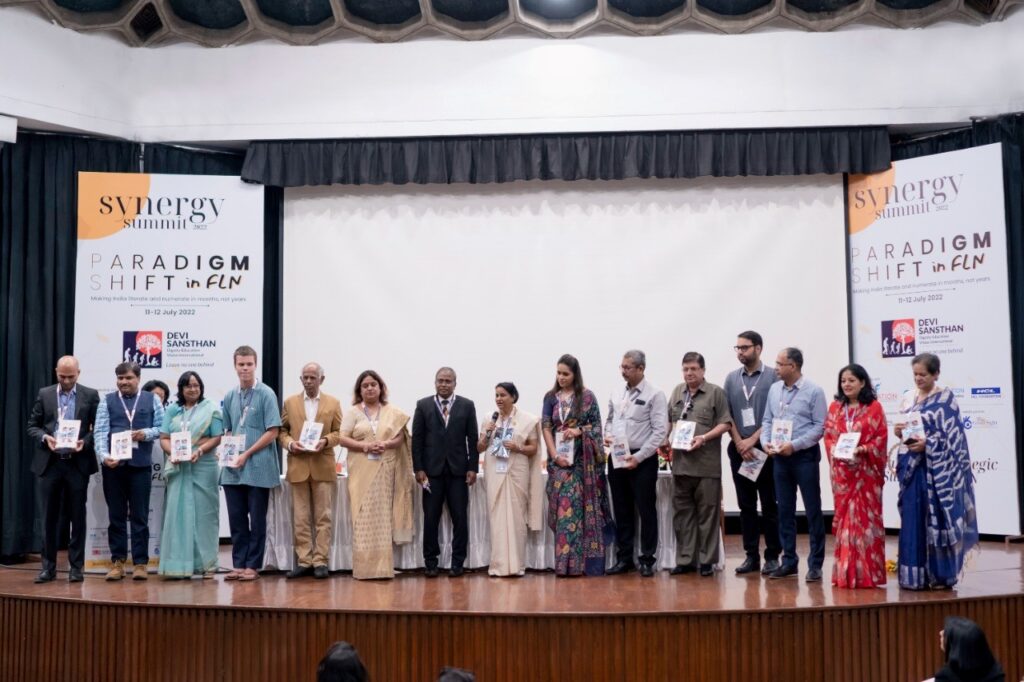
The book argues for a mass movement for literacy, analyzing notable historical examples such as Cuba (1961) and Ernakulam (1989). By bringing together three key elements – mission-minded government leadership, mobilization of all sectors of society, and materials & methods that accelerate learning – it is possible to achieve tremendous literacy gains.
Some Recommendations from the Synergy Summit
Synergy: Looking at the problem of literacy from a system lens and designing methods which focus on all stakeholders. Government, Society and Market need to come together for betterment of education. Come together, synergize and follow each other’s experiences and replicate.
Scaling Up: India is a minefield of successful pilots and failed scale-ups. Solutions that address the aspects of scalability and sustainability in the long run, need to be focused on. Work on schools with higher enrolment of students and make them model schools for the remaining to follow.
Funding: The corporates can be advised to redirect a certain fixed high percentage of their CSR funds towards Foundational Literacy and Numeracy for one financial year.
Gender: Extensive behavior change awareness needs to be done for solving the gender issue.
Food: A hungry child will not learn or study, which makes nutrition as the first stepping stone towards education.
Academics: Keeping the solution simple and pragmatic. Concept clarity and understanding of the subject should be given high importance and making education enjoyable while practicing. Learning to Read and then Reading to Learn should be followed as a concept, giving practice a higher place on the shelf.
Students: Student involvement through practical application of concepts.
Teachers: Focus on upgradation of the last person in the delivery chain: Teachers
Parents: Responsive caregiving at home, involvement of parents and home encouragement for monitoring and helping the child reach FLN level. Recommend government employees to send their own children to government schools, this may help in enhancing the quality of schools.
Technology: Technology is a very powerful tool which in a very blended manner with the teachers and school system, augment the solution for literacy.
Enrolment: Invest in bridging the learning gap due to covid for grade 3 and below and ensure all of them come back to school, focus on learning being the next step.
Children of Migrants: Children of migrant laborers should be admitted immediately to the school where they relocate on the basis of some common card or document so that his education continues uninterrupted.
Each One Teach One: Every privileged student should teach at least one underprivileged student.
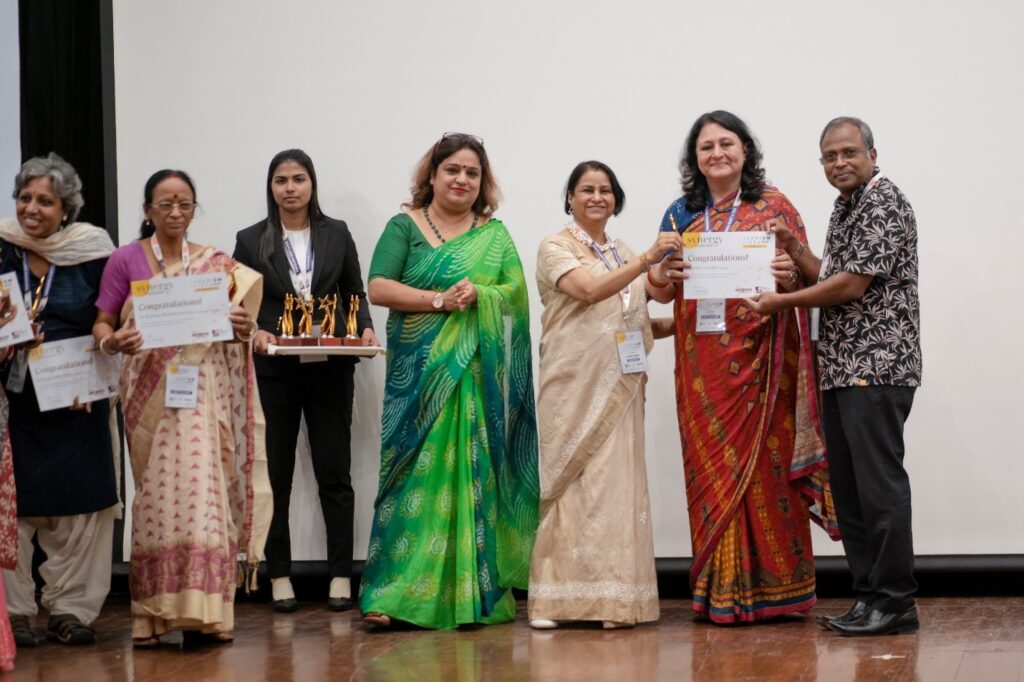
Conclusion
The ability to read and write has a powerful effect on a person – building self-confidence, improving health, enhancing productivity. Literacy is a key determinant of a nation’s social, political and economic progress.
The existing education system is failing us. If we want to build a fully literate society, we need a paradigm shift to accelerate learning for all. Together we can.
DEVI Sansthan
The Synergy Summit on A Paradigm Shift in FLN was hosted by innovative NGO DEVI Sansthan, Dignity, Education, Vision International (www.dignityeducation.org, +91 740 840 6000)DEVI Mission is to catalyse transformation of education through sharing and implementation of evidence-based disruptive processes leading to system-wide adoption. DEVI invites all stakeholders to join hands to scale up FLN in any context or geography.
1UNICEF 2022; World Bank 2019
2 NEP 2020
3 ASER 2019 ‘Early Years’
4 NIPUN BHARAT
5 https://thegoodsight.org/a-paradigm-shift-in-fln/
